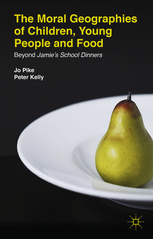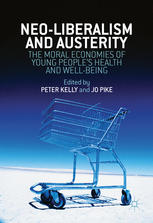
As part of the development of the work of the larger 3 year project we are interested in exploring particular approaches to understanding the contexts in which social enterprises in general, and arts based social enterprises in particular, work with, and for, young people, and for the promotion of marginalised young people’s transitions and social, economic and physical and mental health and well-being.
A key dimension of these contexts is the different forms of responsibility that different agencies, organisations, departments, businesses, communities, neighbourhoods, and individuals assume, or are allocated, in relation to addressing the significant challenges and opportunities that many young people, marginalised or otherwise, face, and which, increasingly, social enterprises are imagined as providing the solution to.
A key concept here will be the idea of ‘moral economy’. This concept enables us to focus on a number of things, including:
those processes that seek to make social enterprise responsible – by governments, businesses and communities – for managing a range of youth issues and concerns;
to imagine these processes as being inherently ‘moral’ in that they ALWAYS involve making some choices, and not others;
to focus on the different power relations that enable some individuals and organisations to be made responsible, and others not so much;
and to critically analyse the consequences – intended or otherwise – for young people, their families and communities, for the ‘moral economies’ of social enterprises.
This concept has a particular history in social science. It has also been used in a number of ways by project members in earlier projects which introduced this concept into the field of Youth Studies.
These projects are outlined below.
Jo Pike and Peter Kelly (2014) The Moral Geographies of Children, Young People and Food: Beyond Jamie’s School Dinners, Palgrave, London
 In this book we used the concept of moral geographies to identify and engage with the elements of choice that relate what it is that we should feed ourselves, our families, our children. We suggested that these questions of choice and what we should imagine as food extended to the various, often complex and ambiguous, processes and practices of food production, processing, transportation and preparation. As well as to the array of personal and cultural practices that structure often idealised, always morally inflected, ideas about children, parenting and food, the family meal, the issues of young people’s nutrition, health and well-being, public health ‘crises’ such as obesity, and the array of possible responses and interventions in relation to these issues, these crises.
In this book we used the concept of moral geographies to identify and engage with the elements of choice that relate what it is that we should feed ourselves, our families, our children. We suggested that these questions of choice and what we should imagine as food extended to the various, often complex and ambiguous, processes and practices of food production, processing, transportation and preparation. As well as to the array of personal and cultural practices that structure often idealised, always morally inflected, ideas about children, parenting and food, the family meal, the issues of young people’s nutrition, health and well-being, public health ‘crises’ such as obesity, and the array of possible responses and interventions in relation to these issues, these crises.
We were interested in the cultural, economic, social, political and spatial dimensions of these choices; the things that contribute to the shaping and the making of these choices; the normative and non-normative forces and positions that contribute to the naming and framing of what it is that we should choose to do, how we should choose to prepare, present and consume our food, where and when these practices and processes should occur, who should be present, and what relations of authority are implicated in the choosing and the doing.
Peter Kelly and Jo Pike (editors) (2017) Neo-Liberalism and Austerity: The Moral Economies of Young People’s Health and Well-being, Palgrave, London.
 Building on our work on moral geographies we found Andrew Sayer’s (2000, 2004 a & b) discussions of moral economies to be useful in framing a discussion of Neo-Liberalism and Austerity, and the ways in which economies are always ‘moral’ (which is different to saying that ‘economics’ is always moral!).
Building on our work on moral geographies we found Andrew Sayer’s (2000, 2004 a & b) discussions of moral economies to be useful in framing a discussion of Neo-Liberalism and Austerity, and the ways in which economies are always ‘moral’ (which is different to saying that ‘economics’ is always moral!).
For Sayer (2004b), ‘moral economy’ is a concept that suggests a:
kind of inquiry focussing on how economic activities of all kinds are influenced and structured by moral dispositions, values and norms, and how in turn these are reinforced, shaped, compromised or overridden by economic pressures.
It is in this sense, Sayer (2004b) argues, that ‘moral’ and ‘economy’ are ‘best defined broadly’. The ‘moral’ here includes an interest in:
lay norms (informal and formal), conventions, values, dispositions and commitments regarding what is just and what constitutes good behaviour in relation to others, and implies certain broader conceptions of the good or well-being.
Sayer (2004a, p.2) suggests that it can be useful to argue that ‘all economies – not merely pre- or non-capitalist ones – are moral economies’. In doing so he recognises that:
Of course, just what counts as moral, as opposed to immoral, behaviour is contestable; some forms of moral economy, for example, that of the patriarchal household, might be deemed immoral, or as domination disguised as benevolence and fairness.
In his work on moral economies Sayer (2004a, p.2) explores the
ways in which markets and associated economic phenomena both depend on and influence moral/ethical sentiments, norms and behaviours and have ethical implications.
Importantly, given our interests in that book in the array of choices made and not made about young people, their education, training and work, their health and well-being in a post-GFC period of ongoing crises for neo-Liberal capitalism, this broad view of the moral creates a:
space not only for assessing moral aspects of economic practices, and economic influences on morality, but also for the assessment of how economic organisation affects human well-being (Sayers 2004b).
We believe that there are a number of points to explore here in relation to young people and the moral economies of social enterprise. These points are just briefly sketched below, but will be developed in the next few years.
We all makes choices, and have choices to make.
But we don’t all have the same capabilities, backgrounds and resources to bring to bear in making these choices.
Choices always have consequences.
But the consequences of choices made or not made are never the same for different people.
We also don’t, mostly, even often, get to choose the circumstances in which choices emerge, or have to be made.
Many young people, for example, had no influence or impact on the unfolding of the Global Financial Crisis.
Yet many of them now have to make choices about school, further education and training, jobs and work in environments profoundly shaped, still, by those events.
As one example here, governments around the world increasingly pass the cost of further and higher education onto individual young people and their families (in the form of loans, fees and debt) because, it is claimed, governments can no longer ‘afford’ to fund ‘free’ higher education (if they ever did).
In addition, young people are increasingly told that jobs as we know them are disappearing. And, that they need to develop the skills and dispositions that will enable them to make their own jobs, that will enable them to be become enterprising.
This is something that the Foundation for Young Australians has published a number of reports on.
And our own University (RMIT), like many others, seeks to develop in young people what it calls ‘enterprise skills’ to making young people Ready for Life and Work!
These are the elements of the ‘choices’ that young people are increasingly told that they must make, that they are told will shape their future life chances, life courses, life choices.
Of course, this demand to be enterprising – this ‘moral obligation’ to make your own work, or suffer the consequences for education and work, for becoming an autonomous adult, for your health and well-being – is something that, possibly, only a limited number of young people are capable of fulfilling.
And it is those young people who, at a particular time in their lives, are less capable of being this ‘kind of person’ (‘enterprising’) that social enterprises are given responsibility for – in managing their ‘transitions’; in promoting their health and well-being; in ‘dealing with’ a variety of issues (employment, housing, criminal justice, substance use) that often identify these young people as ‘marginalised’.
In coming blogposts we will also introduce a number of related ideas, such as the self as enterprise, and the guerilla self, to further develop our interest in the ways in which young people and social enterprises are increasingly made responsible for these matters.
References
SAYER, A. 2000. Moral economy and political economy. Studies in Political Economy. Spring. pp. 79-103.
SAYER, A. 2004a. Moral Economy. [Accessed 20 January, 2016]. Available from http://www.comp.lancs.ac.uk/sociology/papers/sayer-moral-economy.pdf.
SAYER, A. 2004b. Agendas for Moral Economy. Moral Economy: Agendas for the Future. Workshop held on July 6th 2004, at the Department of Sociology, Lancaster University, Lancaster LA1 4YD, U.K.
…


[…] moral economies of social enterprise come into view – something that is made quite clear in this Art Based Social Enterprises blog post. We see both the moral obligation that governments create for young people to be and become […]
LikeLike
[…] in that way (Borzaga, & Galera, 2016: 17; Molina et al. 2017: 22). These cases show us that the category is by no means neutral. Thus, these sort of resistances have to be understood in a context where the rise of the concept […]
LikeLike
[…] of discourse – particularly policy discourse, (i.e the Victorian Social Enterprise Strategy) academic discourse (i.e. ‘moral economies’) and social enterprise […]
LikeLike
[…] neo-Liberal capitalism that we introduced the idea of ‘moral economies’ in an earlier blog post. Moral economies refer to the social, political and spatial dimensions of the choices we make, and […]
LikeLike